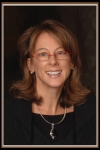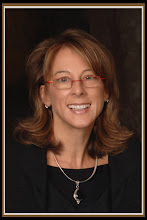 Spring, oh the possibilities. Spring means summer is not far off, and the thought of fresh produce comes to mind. Nothing beats farm-fresh produce. The produce you find in most supermarkets has spent many days, if not weeks traveling to that shelf, depleting it from quality and taste. While you still have to be concerned with toxic pesticides and fertilizers, many farms grow organically or at least limit the use of these chemicals. Ask your local farmers, they love to talk with pride about their food. By buying local, you can often avoid Genetically Modified Crops (GMOs) which should not be consumed by anyone (See notes below). No farm-stand available? You can still enjoy these recipes, but please consider organic or even grow your own. No room for a garden? Herb gardens take up very little space and produce some powerful anticancer agents (i.e. cilantro helps remove heavy metals such as mercury from the body). Summertime is also a great time to use the abundance of fresh kale, basil, arugula, cilantro or garlic scapes to make pestos for pastas, sandwiches and crostini.
Spring, oh the possibilities. Spring means summer is not far off, and the thought of fresh produce comes to mind. Nothing beats farm-fresh produce. The produce you find in most supermarkets has spent many days, if not weeks traveling to that shelf, depleting it from quality and taste. While you still have to be concerned with toxic pesticides and fertilizers, many farms grow organically or at least limit the use of these chemicals. Ask your local farmers, they love to talk with pride about their food. By buying local, you can often avoid Genetically Modified Crops (GMOs) which should not be consumed by anyone (See notes below). No farm-stand available? You can still enjoy these recipes, but please consider organic or even grow your own. No room for a garden? Herb gardens take up very little space and produce some powerful anticancer agents (i.e. cilantro helps remove heavy metals such as mercury from the body). Summertime is also a great time to use the abundance of fresh kale, basil, arugula, cilantro or garlic scapes to make pestos for pastas, sandwiches and crostini.  Tomato Basil Salad
Tomato Basil Salad1 pint or more cherry tomatoes (a combination of red, yellow and gold is nice)
Fresh basil
Organic extra virgin olive oil *
Halve cherry tomatoes and place in serving bowl
Chop basil and add to tomatoes
Drizzle with olive oil
*Note: I use herb infused oils such as basil, rosemary, garlic or lemon. In this recipe I prefer rosemary and basil infused. If you cannot find them locally, Arlotta makes the very best olive oils I have ever tasted and also the most incredible balsamic vinegar.
Tomatoes are a powerful anti-cancer fruit, particularly due the synergistic effects of lycopene, beta-carotene, vitamin C, phenols and other nutrients and antioxidants in the tomato working together to offer cancer protection. But please use organic or locally farm fresh and not the commercially toxic, GMO, or otherwise unhealthy sources.
Basil has powerful anti-inflammatory and antioxidant properties. It contains flavonoids that help shield cell structures from radiation and oxidative damage. Both fresh basil and basil oil have strong antibacterial capabilities, so by adding the herb or oil to your salad, you can help ensure your vegetables are safe to eat.
Grilled Striped Bass with Dill Sauce
2/3 cup (packed) chopped fresh dill
¼ cup olive oil
2 Tablespoons white or golden balsamic vinegar
1 Tablespoon lemon fresh lemon juice
4-6 pieces of local wild striped bass, wild salmon or other fish, skin removed, each pc about ½ lb
Blend dill, oil, and vinegar and lemon juice in mini processor until almost smooth. Season with salt and pepper.
Sprinkle fish with salt and pepper
Grill fish 8-10 min, do not overcook
Drizzle fish with some of the dill mixture and serve the rest on the side.
Dill contains antioxidant properties, and it also deactivates free radicals and neutralizes carcinogens that might find their way into our bodies.
Grilled Eggplant with Rosemary Oil and Cheese
1-2 eggplants
Cheese (Smoked Gouda, Munster, Monterey Jack, Raclette, Mozzarella ….really any cheese or cheese substitute you like*)
Extra virgin Olive oil
Fresh chopped rosemary
Slice eggplant lengthwise or crosswise, depending on size and preference (lengthwise is easiest for grilling)
Sprinkle both sides with salt and pepper and place on paper toweling
Let sit at least 30 minutes, blot dry (this will remove the water as well as the salt….if you skip this, the eggplant will absorb too much oil)
Meanwhile, chop the rosemary and mix with a generous amount of olive oil
Baste eggplant with olive oil/rosemary mix, use more oil if necessary….eggplant should be well coated. Grill eggplant until done on one side, turn, grill a few minutes and add cheese. When cheese is melted, remove.
Note: this dish goes well with the tomato salad or a salad of chopped tomatoes, parsley and olive oil
*I prefer organic, raw or those from small farms to cut down on pesticides and added hormones.
Eggplant is rich in dietary fiber, loaded with vitamins and minerals, and contains powerful cancer fighting antioxidants such as chlorogenic acid, which fights free radicals and helps protect cells from mutating into cancer cells, and nasuin, which helps cut off the blood supply to cancer cells.
Rosemary is a powerful anti-cancer herb. The two key ingredients in Rosemary-caffeic acid and rosemarinic acid-are potent antioxidant and anti-inflammatory agents, which help protect the body's cells from damage by free radicals. Rich in carnosol, Rosemary has been found to detoxify substances that can initiate the breast-cancer process. It's widely known that an imbalance of estrogen hormones in women can contribute to breast cancer. Rosemary stimulates liver enzymes which inactivate estrogen hormones. Rosemary, along with thyme, oregano, basil and mint promote apoptosis in cancer cells and reduce their speed by blocking the enzymes they need to invade neighboring tissues. Rosemary can inhibit the formation of HCAS, the carcinogenic compounds that form when you cook protein, by 75% (so use chopped rosemary in your marinade if you choose to grill proteins)
Grilled Zucchini with Chopped Dill
Zucchini (one or two, more if very small)
Dill (I will leave it up to you regarding amounts, but if you love the taste of dill, by all means, be generous!)
Extra Virgin Olive oil
Slice Zucchini lengthwise or crosswise, depending on size and preference. (I find a 1/4” thickness works well on the BBQ)
Chop dill and mix with olive oil, rub onto zucchini, sprinkle with salt and pepper, and grill
Zucchini has the ability to protect against cell mutations and oxidative stress, and contains powerful anti-inflammatory compounds. It is also a good source of potassium and lutein.
(See dill above)
Watercress and Red Cabbage Salad
 Wash one bunch of watercress and chop
Wash one bunch of watercress and chopRemove outer layers of red cabbage and slice thin or chop (use about ¼ of the head for one bunch of watercress).
Extra virgin olive oil
Aged Balsamic vinegar
Optional—add a handful of raw pine nuts or chopped parsley
Toss salad with a pinch of salt, fresh pepper (if desired) and drizzle with Arlotta balsamic vinegar and lemon infused olive oil. Alternatively you can use any olive oil and balsamic, but be sure to buy the best quality you can find.
Serve at once
Watercress offers a hefty dose of beta-carotene, copious amounts of calcium, carotenes like lutein, and trace amounts of omega-3’s. Watercress has a high amount of PEITC (phenylethylisotiocyante) which appears to block cancer-causing chemicals, perhaps even protecting the lungs of smokers from the carcinogens associated with tobacco (however, please don’t smoke…I tell you this to understand the power of watercress)
Red cabbage boosts immunity and is a member of the cruciferous family, whose indoles help with estrogen metabolism. It also contains anthocyanins, a class of flavonids that provides as many as 36 different varieties of anticancer chemicals. Cabbage also contains a significant amount of glutamine, an amino acid that has anti-inflammatory properties. Red Cabbage boosts the immune system’s ability to produce more antibodies. Red cabbage contains large quantities of sulfur and other minerals that work as cleansing agents for the digestive system. Raw red cabbage cleans the bowels, thus helping to prevent indigestion and constipation.
Parsley has potent anti-inflammatory and anticancer abilities. The phytochemicals in parsley can slow the speed of cell division, leaving time for the cell to correct DNA mistakes or to activate apoptosis, and recent research shows that one particular compound found in parsley and celery, apigenin, can stop certain breast cancer tumor cells from multiplying and growing, so it’s a good idea to have some everyday.
Additional Notes
When salt is used, please consider pure sea salt as ordinary table salt and commercial sea salts are often treated with chlorine to bleach it white and may contain additional chemicals to prevent caking. When using balsamic vinegar, please keep in mind that many inexpensive varieties sold in the supermarket aren’t really balsamic vinegar but rather a cheap imitation. Try to purchase only high quality brands with no added ingredients When olive oil is used, consider organic or a trusted source as not all olive oils are as pure as they claim to be. I choose to use organic extra virgin olive oil for cooking and love the infused olive oils by Arlotta foods that we discovered at the farmers market in Southampton. Avoid canola oil…..have you ever seen a canola plant? That’s right, there is no such thing. Canola stands for “Canadian oil low acid”. Canola oil is developed from the rapeseed plant, which is part of the mustard family of plants. These oils have long been used for industrial purposes (in candles, lipsticks, soaps, inks, lubricants, and biofuels). It’s industrial oil, not a food. Rapeseed oil is the source behind mustard gas, and on its own it causes emphysema, respiratory distress, anemia, constipation, irritability, and blindness. But through the beauty of genetic modification, it is now sold as edible oil.
To be safe, use oils such as olive or walnut on salads
No GMO’s please:
Elyn Jacobs
Elyn Jacobs is a certified cancer coach, a breast cancer survivor, and the Executive Director for the Emerald Heart Cancer Foundation. She empowers women to choose the path for treatment that best fits their own individual needs. Elyn helps women to uncover the nutritional deficiencies and emotional stress patterns that may have contributed to their cancer and to support their body as it activates it own natural ability to fight the disease. She is passionate about helping others move forward into a life of health and wellbeing. To learn more about Elyn’s coaching services or to learn more about eating for life, please visit: http://elynjacobs.wordpress.com.































